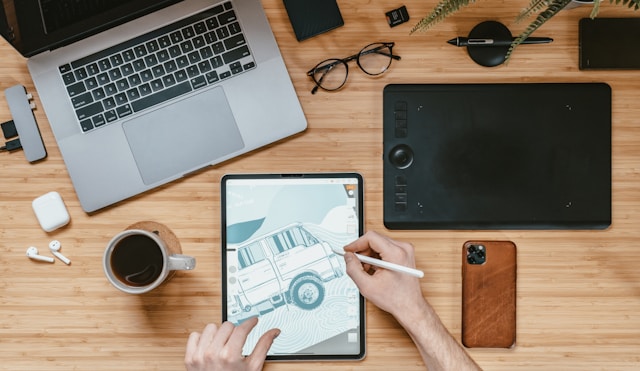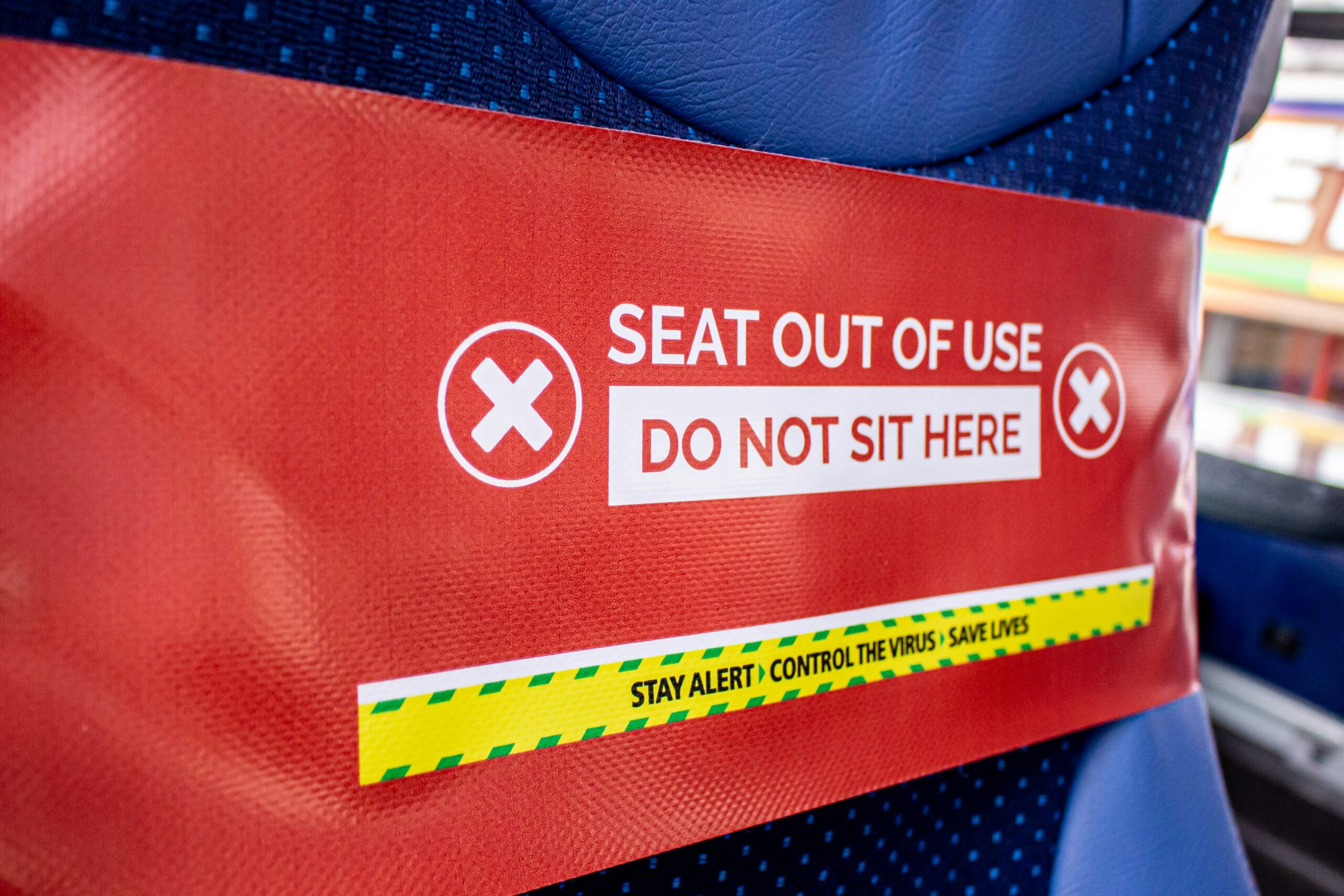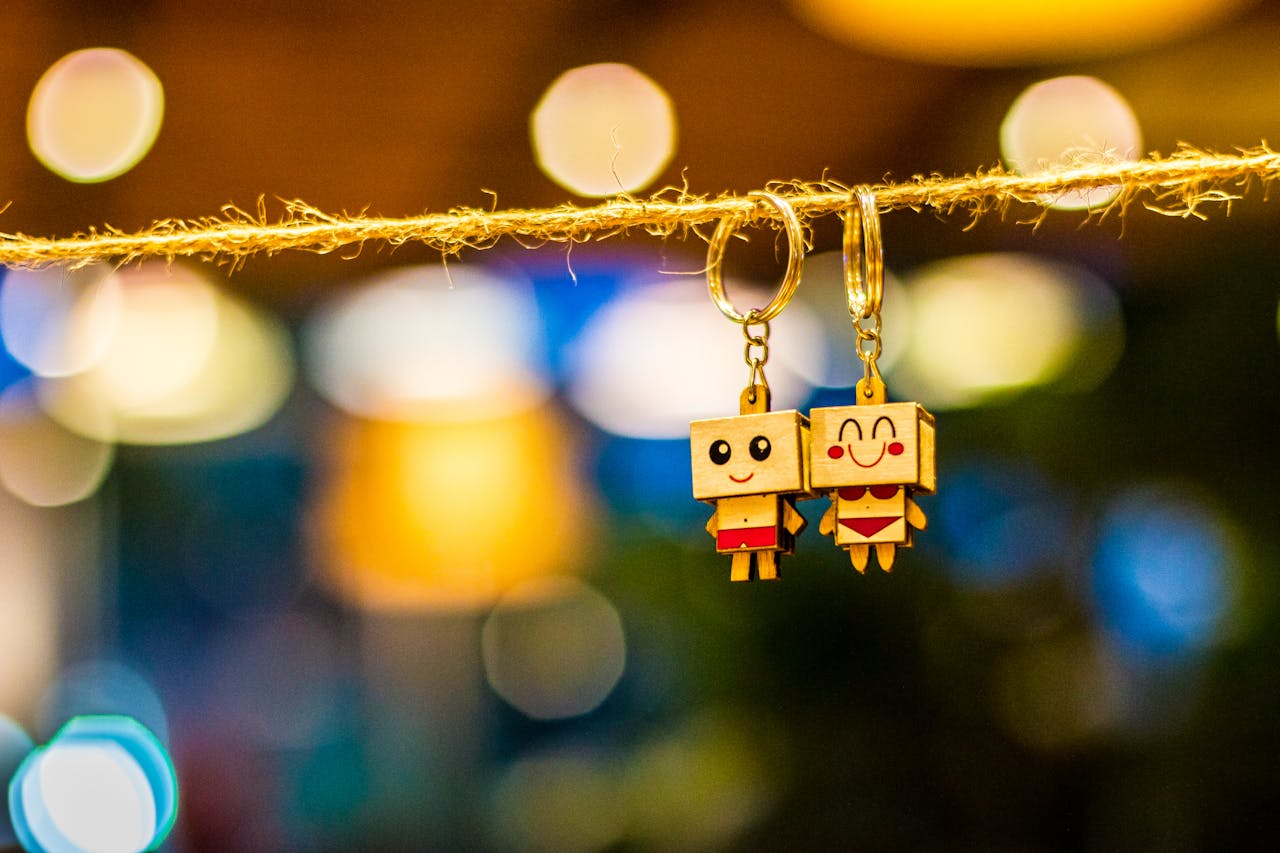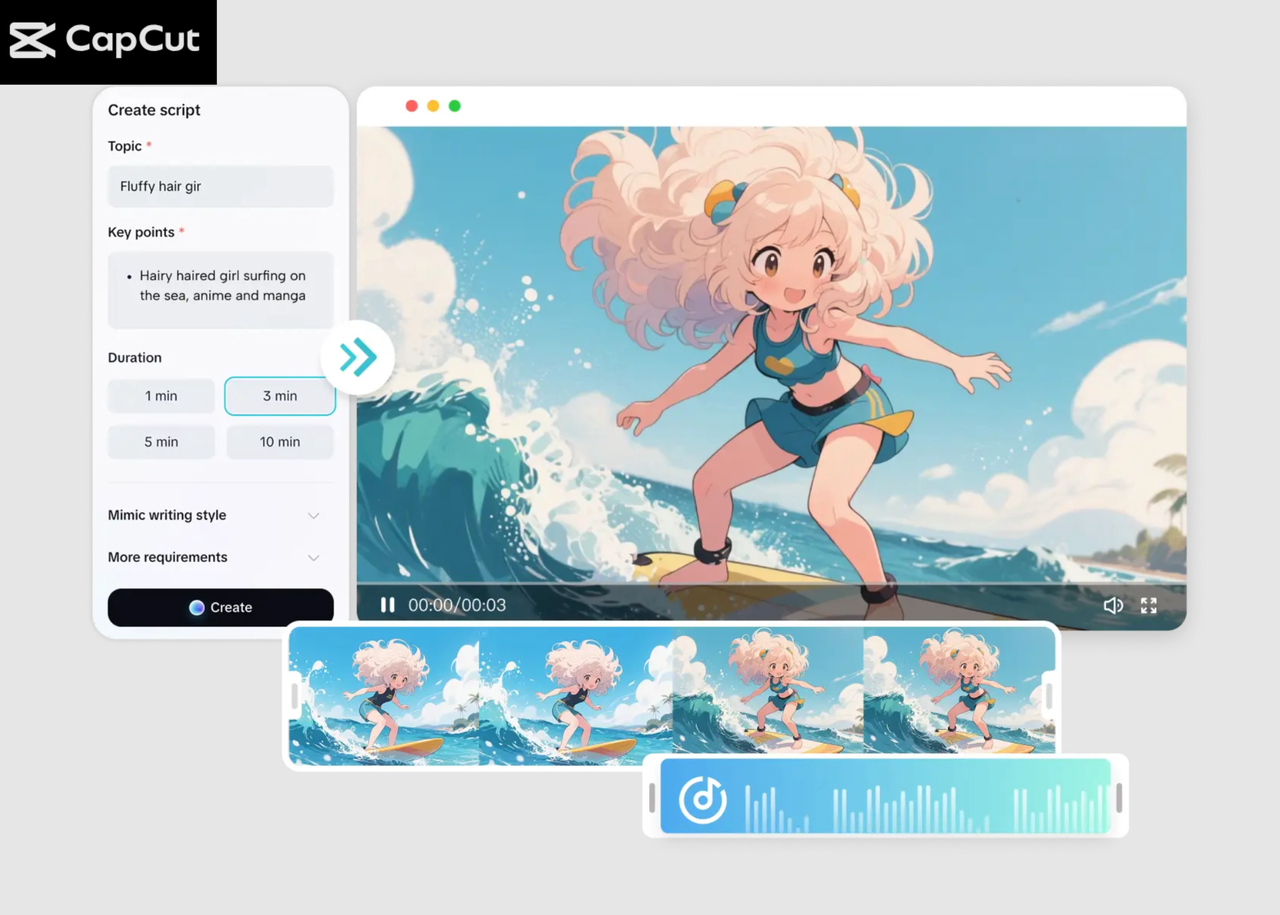Digital design vs graphic design is a common comparison in the creative world. Digital design and graphic design focus on visual communication but serve different purposes. Digital design centres on interactivity and user experience, whereas graphic design is rooted in static visuals and print media.
Key takeaways
- Digital design is interactive and user-focused, often used in apps, websites, and screen-based media.
- Graphic design focuses on static imagery, with an emphasis on branding and materials for print.
- Career paths and salaries are not the same, with designer roles often earning higher pay.
- Strong visual communication and precise typography are fundamental skills in both digital design.and graphics design
Digital Design vs Graphic Design
Understanding the contrast between digital design and graphic design begins with defining each field, though they share similar foundations in visual communication. Here is the definition of digital design and graphic design that you should know to distinguish the two fields.
What is Digital Design?
Digital design refers to visual communication tailored for digital platforms such as websites, mobile apps, and social media channels. Unlike traditional graphic design, it focuses on interactivity, user experience, screen responsiveness, and functionality.
Digital designers use tools like animation, video, audio, and 3D modelling to engage users and solve specific problems. Unlike print, digital design performance is measurable through metrics like clicks, shares, and downloads. Common examples include mobile apps, webpages, banner ads, infographics, and social media content.
What is Graphic Design?
Graphic design is the process of planning and creating visual content to communicate ideas with clarity and purpose. As a form of visual communication, it utilizes elements such as color, shape, texture, and space to deliver messages in an impactful and effective way.
Designers may specialise or work across media, creating brand identities, web elements, packaging, editorial layouts, and marketing materials. Each design serves a different purpose—whether to inform, engage, or convert—making graphic design a broad and essential field across both digital and print platforms.
Difference between Digital Design and Graphic Design
These two fields are not similar, even though they work with design. Here are some differences you should know in terms of characteristics, career, and user experience.
1. The Characteristics
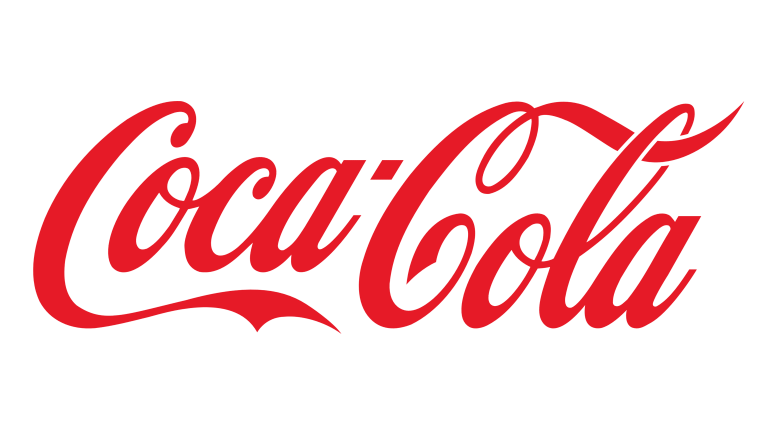
Coca-Cola logo as an example of graphic design | Image Source: 1000Logos
Graphic design is rooted in maintaining brand consistency and creating visuals for physical or print-based presentations. Designers follow company standards, including colours, fonts, and logos. They also create tangible materials such as packaging, envelopes, and signage that reflect the brand, printed and physical.
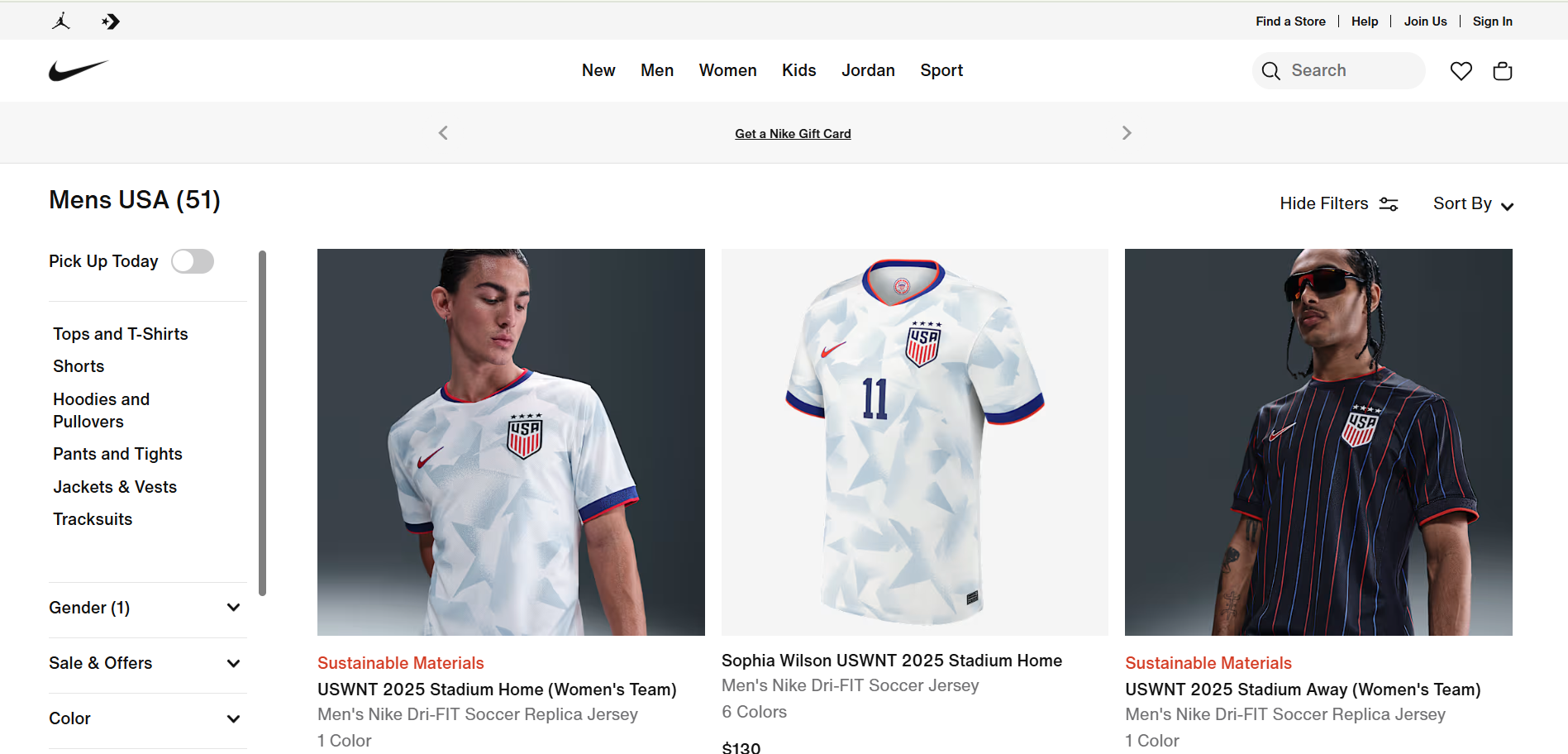
Nike Website as an example of digital design | Image Source: Nike
In contrast, digital design emphasises interactivity and adaptability. It involves creating responsive visuals tailored for various screens and devices, often allowing user engagement. Examples include Nike websites that blend functionality with aesthetics for a dynamic user experience.
Another defining trait of digital design is data-driven refinement. Unlike traditional graphic design, digital outputs can be tested and tracked through analytics. Designers use real-time data and A/B testing to improve engagement and optimize visual performance effectively.
Also Read : Graphic Design Process: A Step-by-Step Guide for Designers
2. Career

Graphic design career to make a packaging | Image Source: Creativebloq
Graphic design careers centre around visual storytelling for print and static media. Professionals work in ad agencies, in-house marketing teams, or as freelancers, creating logos, packaging, advertisements, and branded content that aligns with a company’s identity, often focusing on layout, typography, and visual harmony.

Example of a good UX and UI website | Image source: Airbnb
Digital design careers involve interactive, user-focused experiences. UX and UI designers create intuitive interfaces for apps and websites, while animators and production designers craft motion graphics and digital visuals.
Also Read : Botanica Graphic Design Trend: Examples to Blend with Nature
3. User Experience

Graphic Designer deals with the Pepsi logo | Image source: 1000Logos
Graphic design mainly focuses on visual communication, employing elements like colour, layout, typography, and imagery to convey messages clearly and effectively. While it considers how a viewer interprets a design, it does not typically involve interaction or functionality.

Digital designer deals with the Pepsi Website
Digital design, on the other hand, places strong emphasis on user experience (UX). It involves creating interactive elements that users can navigate, click, or respond to. Every design choice is informed by how users interact with the content, ensuring usability, accessibility, and engagement across devices.
Also Read : UX Audit Explained: What It Is and How to Do It
Digital Designer vs Graphic Designer Salaries
There’s a notable salary gap between the two fields. Graphic designers typically earn up to $65,000 annually, while digital or visual designers can exceed $90,000. This reflects the growing demand for digital skills and the perception of digital design as more innovative.
Graphic design is sometimes viewed as more traditional or static, contributing to its lower earning potential. In contrast, digital design’s alignment with tech-driven industries and evolving user experiences makes it more valuable in today’s fast-paced digital economy.
Also Read : 7 Must-Know Best Practices for UI Design That Users Will Love
Now You Know Everything about Digital Design vs Graphic Design
Graphic design and digital design serve different purposes—one prioritizes interactivity and user experience, the other focuses on static visuals and branding. Understanding how digital design and graphic design are not the same is essential for success in today’s evolving creative and digital industries.
Digital design and graphic design both require effective visual communication to connect with their audiences, and a key part of that is choosing the right font. Creatype Studio offers a premium font collection to make your design stunning for the client.
Find out premium fonts from Creatype Studio to bring your digital design and graphic design work to life with style and impact.
